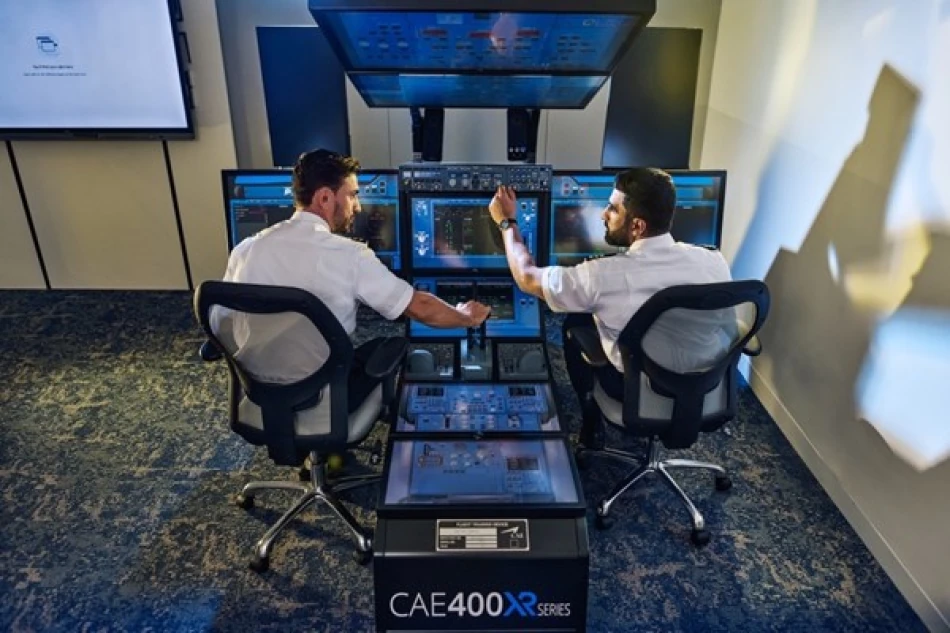
Emirates Unveils New Pilot Training Center with 500M AED Investment
Emirates Opens State-of-the-Art Pilot Training Center as Aviation Demand Soars
Emirates has unveiled a cutting-edge pilot training facility in Dubai, marking a significant investment in aviation infrastructure as the airline prepares for fleet expansion with next-generation aircraft. The 500 million dirham ($136 million) center represents the carrier's confidence in long-term travel recovery and positions Dubai as a global aviation training hub capable of rivaling established centers in the United States and Europe.
Strategic Investment in Future Fleet Capabilities
The 63,318 square-foot facility houses six full-flight simulators and introduces the industry's first internally-developed "Pilot Support Station," a proprietary system that allows pilots to prepare cockpit configurations and flight plans in an interactive environment before training begins. This innovation reduces preparation time and maximizes focused training hours—a critical advantage as airlines worldwide face pilot shortages.
Sheikh Ahmed bin Saeed Al Maktoum, Emirates' Chairman and CEO, emphasized the center's role in supporting Dubai's ambitions as a global aviation hub. The facility is strategically located near other Emirates training facilities, creating an integrated campus that mirrors training ecosystems found at major carriers like Lufthansa's operations in Germany or Singapore Airlines' facilities.
Addressing the Global Pilot Shortage
The timing of this investment reflects broader industry challenges. Boeing projects the need for 649,000 new commercial pilots over the next 20 years, with the Asia-Pacific region requiring the largest share. Emirates' enhanced training capacity—increasing by 54% to 130,000 annual training hours across all facilities—positions the airline ahead of competitors in securing qualified pilots for expansion.
Each simulator can deliver 7,500 training hours annually to approximately 1,000 pilots. When fully operational with six positions, pilots will have access to 17 training simulators across the Emirates network, including 11 devices for Airbus A380 and Boeing 777 aircraft.
Technology Integration and Cost Efficiency
The center incorporates advanced 3D printing capabilities for manufacturing complex components and training equipment structures, generating annual savings of up to one million dirhams. This in-house manufacturing approach reduces dependence on external suppliers and accelerates equipment maintenance—a strategy increasingly adopted by airlines seeking operational independence.
The facility currently operates two full-motion A350 simulators, with plans to add four additional units over the next two years, including Boeing 777X simulators. This expansion aligns with Emirates' aircraft delivery schedule and reflects confidence in travel demand recovery.
Regional Aviation Hub Competition
Emirates' investment comes as Middle Eastern carriers compete with Asian and American hubs for training dominance. The UAE's strategic location between Europe and Asia, combined with Dubai's established aviation infrastructure, creates advantages similar to Singapore's Changi Aviation Academy or FlightSafety International's U.S. facilities.
The center's full recording capabilities allow instructors to replay any training segment for performance review—a standard feature in modern training but executed here with proprietary technology developed in-house. This approach gives Emirates greater control over training standards and intellectual property compared to airlines relying entirely on third-party training providers.
Market Implications for Aviation Recovery
For investors and industry observers, Emirates' substantial training investment signals confidence in sustained aviation growth beyond current recovery levels. The focus on A350 and 777X aircraft—fuel-efficient, long-range models—indicates the airline's strategy to capture premium international routes as business travel returns and environmental regulations tighten.
The 54% increase in training capacity suggests Emirates anticipates significant pilot recruitment, likely supporting route expansion and frequency increases across its network. This positions the airline to capitalize on competitors' capacity constraints while maintaining the high safety and service standards that differentiate Middle Eastern carriers in the global market.
Most Viewed News

 Layla Al Mansoori
Layla Al Mansoori






